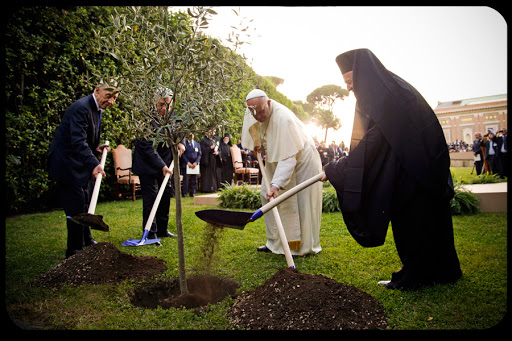The year 1076 has rather less familiarity to it than 1066, when the Normans invaded Britain, but it was not without incident. An uproar erupted about the capacity of monarchs to invest bishops, which the Papacy was resolved to contest. At the same time, one of the bishops who was caught in the crossfire of that dispute was Archbishop Anselm of Canterbury, who had to go into exile for a time on account of it. But this did not prevent him from finalizing his important theological treatise called the Monologion which opens thus:
If anyone does not know, either because he has not heard or because he does not believe, that there is one nature, supreme among all existing things, who alone is self-sufficient in his eternal happiness, who through his omnipotent goodness grants and brings it about that all other things exist or have any sort of well-being, and a great many other things that we must believe about God or his creation, I think he could at least convince himself of most of these things by reason alone, if he is even moderately intelligent…
This is a robust statement about the nature and unity of God, while also making an important claim about the capacity of man to come to reasonable conclusions about God by means of his natural reason — if he will trouble to apply it. This was highly relevant at a time when Christianity was confronted by a rapidly expanding Islam. A context which also makes particularly interesting a letter recorded as being sent that same year from Pope Gregory VII (taking time out from the Investiture controversy) to write to a Muslim leader in Africa (exactly which one is not entirely clear though it was most likely one in the west of Africa). In his letter he wrote:
The issues are far from new. There has been some degree of excitement about the present Pope’s special prayer event held at the Vatican with Israeli President Shimon Peres and Mahmoud Abbas President of the Palestinian Authority.
There have been several strands to the surprise and even unease. One concerns the act of praying together with members of another faith (Islam in particular). Another strand wonders whether they could in fact all be praying the same God, while some have even speculated that is was a first ever (and by implication) mistaken step for Muslim prayer to be offered inside the Vatican walls at all — even if it was in the Garden.
The words of St. Anselm make clear that how we understand God is extremely important. At the same time, he articulates a very clearly the sense in which Christians maintain there is one God something which would actually resonate very well with both Muslims and Jews. The key point here being that God is that than which nothing greater can be conceived, and also, to look at things another way, the ultimate reality by virtue of which everything outside Himself is caused to exist. All classical Christians Jews and Muslims would accept this formulation, and since they understand themselves to pray to this God then they are by definition praying to the same God.
Nonetheless, it is also true that creedal Christians hold that Jesus Christ was and is the Son of God and thus both fully human and divine and that, in addition, he participates with the Holy Sprit in God as Triune. Neither, Jews nor Muslims can accept this. Given that we may plausibly suppose that in some significant sense the way in which we describe God defines and captures (as it were) for us the intended recipient of our prayers, then it would seem to follow that we are praying to different Gods after all.
This is deep and non-trivial territory. But it is possible to say that insofar as St. Anselm offers a very clear understanding of what God has to be in order to be God, and since it is clearly an understanding of God that all three Abrahamic faiths affirm, there is a real continuity which is not disrupted by the further truths Christians uphold. In other words, the divinity of Christ in no way entails the denial of the understanding of God as our Creator, which is common to Jews and Muslims as well. Accordingly, there is no reason to suppose that Gregory VII wrote in error, and still less that Pope Francis acted in error any more than did Pope John Paul II at Assisi. Though it is important to note that the prayers were made separately and not conjointly which is why it would not be usual to share a liturgy as it were in Church which would be something rather different.
As to whether this was the first time Muslims have prayed inside the Vatican it reasonable to think it is not. It is certainly well recalled in Saudi Arabia that when a delegation visited the Vatican from the Kingdom, to be received by Pope Paul VI, a room was provided for them in which to say their prayers. This made a very deep and positive impression.
Such grand gestures as the prayer together in the Vatican Gardens should really be a prelude, and this was well captured in one of the documents produced by the Pontifical Council for Interreligious Dialogue (Recognize the Spiritual Bonds Which Unite Us: 16 Years of Christian-Muslim Dialogue, p. 69):
To do this is surely the best proof, not only of our shared humanity, or even our shared intentions in prayer, but more important still, of our shared commitment to do the will of the one true God.
The Rev. Canon Alistair Macdonald-Radcliff is Senior Advisor to the King Abdullah Bin Aziz International Center for Interreligious and Intercultural Dialogue and Director General of the World Dialogue Council. He is based in the United Kingdom.

